- Wednesday, 11 February 2026
Gen Z Revolution And New Discourses
The land which we claim as ours was crafted and handed over by our brave ancestors to us as a beautiful garden to co-exist together. Being at constant loggerheads with each other means preparing a fertile ground for the anti-national elements or vested groups to compete and impose their will on us. The emergence of NGOs (Non-Governmental Organisations) in Nepal began with the dawn of the democratic era in 1950, as partners in Nepal's development, focusing on areas such as healthcare, agriculture, and education. Their growth accelerated after the restoration of democracy in 1990.
According to different media reports, a substantial number of NGOs/INGOs today are found to be involved in dismantling our social fabric and age-old culture. The government should put them under scrutiny, and if found guilty, they should face severe penalties as part of an anti-national and anti-corruption drive, as mandated by Nepal's Gen Z revolution 2025. In today's geopolitics, apathy is increasingly prevalent, while empathy is in short supply. The ongoing skirmishes and wars around the globe serve as a stark example. Powerful and rich countries are constantly fanning the flames of fire on weak and vulnerable countries to conduct controlled anarchy to establish their interest.
Geopolitical dynamics
Given our geostrategic location and geopolitical dynamics, Nepal needs to maintain a fine balance to dispel such chronic issues while keeping its core values intact, bringing a paradigm shift our foreign policy to protect our national integrity and sovereignty. Getting rid of those NGOs/INGOs that are operating as termites to undermine our society is also important. Nepal, as a landlocked country, shouldn’t forget its geographical and geopolitical compulsion with its immediate neighbours. Friendship with all but special bonding with India and China should be an irrevocable reality of our foreign policy.
Still, it is hard to believe that Nepalis were involved in setting Singha Durbar and other vital installations on fire during the Gen Z revolution. These are in proximity to the Nepali Army Headquarters and its battalions. The Singha Durbar is not a mere historic building from where our central administration runs; it is the symbolic pillar of Nepal's sovereignty and integrity. Tomorrow, we may reconstruct the seat of the government with the application of all engineering marvels, but the vacuum of major security lapses will live forever.
Today, revitalising the morale of all security forces is indispensable for the rekindling and functioning of basic law and order. Only incentive is not going to work. The rank and file of the security forces call for capacity and character with honesty and constancy in the leadership qualities. We shouldn’t forget that the same security forces, in the name of Gorkhali Army, under an incontestable leadership, had defended the then mighty British forces. However, this time around, they were unable to protect their own weapons and uniforms, vital installations, and the bars and walls of the prisons. It doesn’t mean that, king is an urgency, but king-like thoughts and deeds in leadership are the urgency for fabricating the tolerant societies, and upholding the national dignity and sovereignty, be it on the political or security front.
A total of 3 trillion (US$21 billion) in loss, including around 1 trillion in public infrastructure alone, has been estimated, in addition to 74 lives lost and 2113 injured. Many precious lives and vital installations could have been saved had the breakdown of morale and ground-based intelligence failure on the part of all security forces not happened.
Besides a thriving economy, robust infrastructure, and forward-thinking institutions, security is the bedrock for any country to survive and prosper. This explains why every country spends a bulk of taxpayers' money on safeguarding the same taxpayers and associated factors. Retaining the industrialists and investors, and welcoming more FDI to address the core issues of Gen Zeers, that is, opening more job opportunities for aspiring Nepali youth in their own country, is the primary concern. It calls for a security guarantee through major security reform. Every year, around 5, 00,000 Nepali youth depart for foreign employment.
Productive sectors
Reaching the unreached via drastic reform in the education system is vital. Nepal needs more graduates with practical skills to be absorbed in the internal and external job market of construction, manufacturing, and productive industries. Being a recipient of remittance is always a welcome move, but to avoid it creating the risk of 'Dutch Disease', our effort should be to limit it to around 25 per cent of GDP. In the absence of productive sectors, it is reaching a new high of 33 per cent today. However, the World Bank recently projected Nepal's growth with a 3.1 per cent decline from what it had projected 5.2 per cent in the recent past, and this implies more vulnerabilities in our overall economy.
We are standing right at a point where we need to transform the challenges into opportunities with this new political discourse. The end of political clientism is an urgent call. On the same note, a network of patronage and policy-level corruption needs to be dismantled immediately. We shouldn’t forget that power always remains with the source: the people.
(The author is a former senior engineer of the Nepali Army. pthapa.ktm@gmail.com)



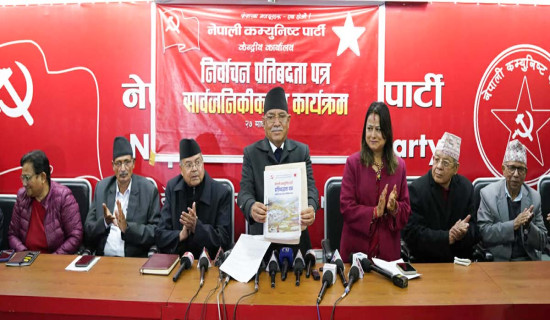
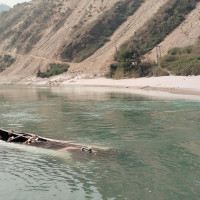
-square-thumb.jpg)
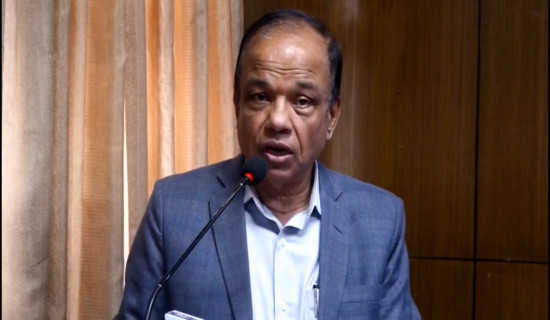
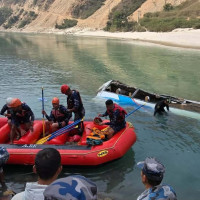
-square-thumb.jpg)

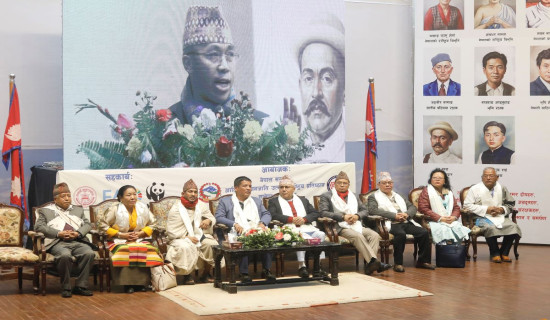
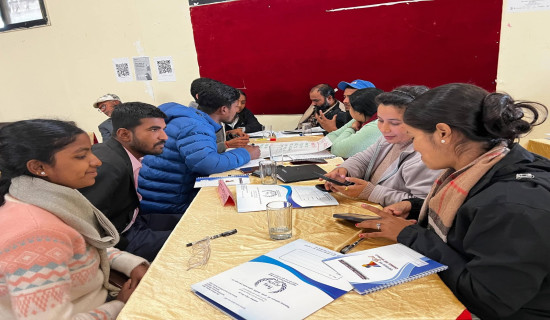

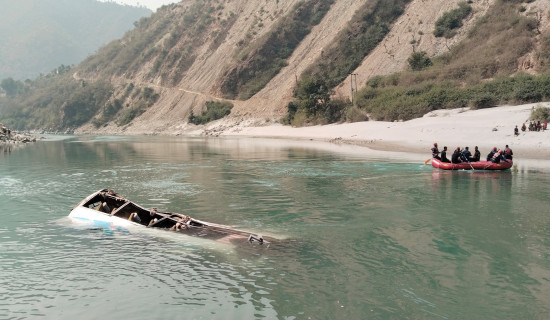

-original-thumb.jpg)